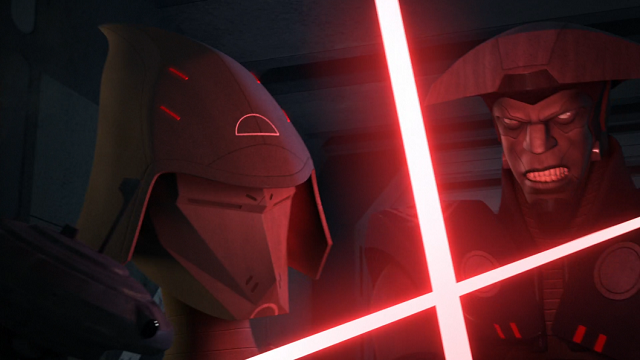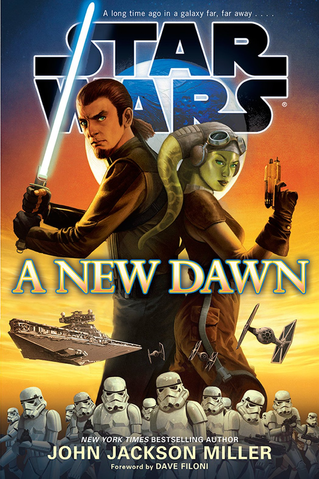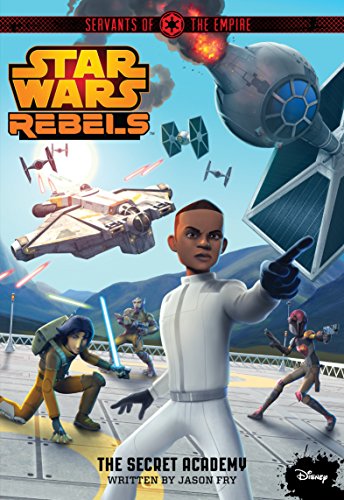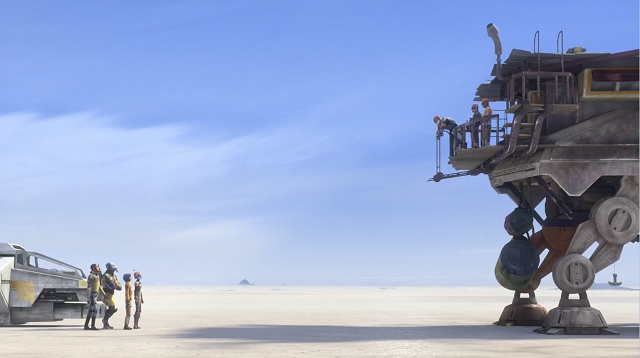
The theory behind any social Darwinist system is that not only do the fittest survive, but society is purportedly better off when competition encourages innovation and achievement. “Always Two There Are” demonstrates how rivalry and competition not only serve as the basis for advancement within the Inquisitorius, but as the fundamental organizing principle of the Galactic Empire. Already in this episode, the audience sees that this competition might sow the seeds for future conflict within the Imperial ranks: conflict that might not actually bring about the results that ambition demands.
In this episode, we learn that the Seventh Sister and the Fifth Brother are Inquisitors seeking the same quarry. They’re competing for the same prize in a few ways, as Dave Filoni explained in Rebels Recon: the Inquisitors are not only chasing after Ahsoka and her Jedi entourage but they’re also all competing for the now-vacant position of Grand Inquisitor. Pablo Hidalgo added another detail: even the very numbers in their names might signify some sort of status, or at least another basis of competition. Even without these behind-the-scenes details, we see that the Fifth Brother and Seventh Sister are surprised to see each other and that they’re refusing to share credit or information with each other. I don’t blame the Seventh Sister, as she’s much cooler than the Fifth Brother so far (SMG’s voice acting and the character animation and design knocked it out of the park — she’s described as a thinking man’s villain, and I’m looking forward to seeing what that entails) but she’s clearly willing to pretend she has knowledge that she doesn’t, just to make a play at withholding information from the Fifth Brother. That’s not very productive. Read More
 Now that we’ve all had well over a month to digest the Force Friday releases, some big-picture reactions are taking shape. Recently Jay elaborated on how the Servants of the Empire series
Now that we’ve all had well over a month to digest the Force Friday releases, some big-picture reactions are taking shape. Recently Jay elaborated on how the Servants of the Empire series  As the Journey to The Force Awakens campaign kicked off on September 4th, one of the many questions readers started asking was: why is the Empire falling apart so quickly? The obtuse answer is that this is what the story demands, and we’ll learn the full reasons on December 18th. But many of us thought the war would last far longer than in the Expanded Universe, where the Empire was driven out of the Core Worlds as early as five years after Return of the Jedi. Surely this time the war would truly rage on for many many years: but that’s not what happened. Suddenly, the Empire of the EU seemed a lot more solid and formidable. Folks speculated as to the reasons why, such as the collapse of central authority, the unwillingness of the Navy to waste time protecting a symbolic world like Coruscant, defections to the New Republic, etc.
As the Journey to The Force Awakens campaign kicked off on September 4th, one of the many questions readers started asking was: why is the Empire falling apart so quickly? The obtuse answer is that this is what the story demands, and we’ll learn the full reasons on December 18th. But many of us thought the war would last far longer than in the Expanded Universe, where the Empire was driven out of the Core Worlds as early as five years after Return of the Jedi. Surely this time the war would truly rage on for many many years: but that’s not what happened. Suddenly, the Empire of the EU seemed a lot more solid and formidable. Folks speculated as to the reasons why, such as the collapse of central authority, the unwillingness of the Navy to waste time protecting a symbolic world like Coruscant, defections to the New Republic, etc.
